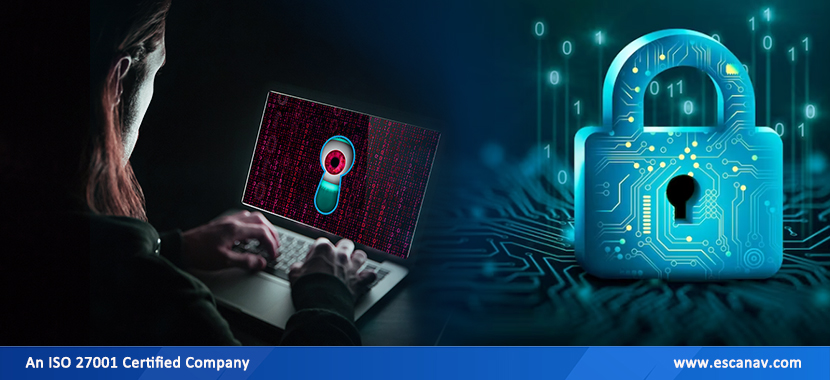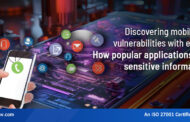Many of us have become accustomed to using webcams on our PCs, laptops, or smartphones. It is also possible to hold long-distance conversations with others with the help of them.
One of the key points shown during the hard lockdowns is the importance of video chatting, whether for professional purposes or for private reasons.
Cybercriminals find webcams to be incredibly tempting – and you can even become a victim of webcam hacking.
The following tips will help you determine if your webcam has been hacked. As well as protecting your webcam from hackers, we’ll offer some tips for removing them.
Can hackers access your webcam?
There are new cyberthreat cases reported daily, confirming that advancing digitization has brought an immeasurable increase in cyberattacks. A variety of channels can be used by hackers to compromise your online privacy and target your personal information.
It does not matter if your webcam is on your smartphone, tablet, PC, or laptop, hackers are able to access it. In addition, IoT (internet of things) devices like surveillance cameras and baby monitors have multiplied the entry points for cybercriminals.
Cybercriminals usually access your laptop using various types of malware. Once they have access to your webcam, they can spy on you remotely and do whatever they want.
Various reports have reported compromising or intimate recordings appearing on malicious websites – as well as hackers threatening their victims with such threats.
How and in what cases is the webcam hacked?
Cybercriminals must first gain access to your laptop, PC, smartphone, or tablet in order to hack your webcam. Once inside, they can control your webcam, including turning it on and off at will. Hackers use different methods to accomplish this. Let’s discuss them now.
Using phishing emails to hack webcams
Often, scammers use phishing emails to infect your computer with malware and hack your webcam. When cybercriminals send bogus emails aimed at obtaining sensitive information, such as PINs, login credentials, or bank account information, they are called phishing.
These phishing emails are usually so well designed that you cannot distinguish them from the real thing. You may receive fake messages asking you to change your password. By clicking on the link contained in the message and entering your details on the fake website, which you couldn’t distinguish from the real one, the fraudsters gain unrestricted access to your account.
Phishing emails with malware attachments are another type of phishing email cybercriminals like to send. For example, you may receive a message from a friend containing vacation photos in a zip file. It is impossible to doubt for a moment that your acquaintance wants to send you a picture of their vacation or a document that may be of interest to you. However, these attachments could turn out to be fake, and yet time and time again, people fall victim to this scam.
How serious is phishing as a cyberthreat? See our blog post on phishing emails for more information.
Cyber criminals like to use Trojans to hack your webcam
Cybercriminals sometimes sneak Trojan horses into software and apps so that we end up downloading webcam-hacking malware ourselves onto our laptop, smartphone, or other electronic devices without even realizing it. For this reason, you should update your programs and apps frequently to fix any security flaws.
Your webcam may be the target of a tech support hack.
Occasionally, your laptop, PC, or mobile device may be contacted by someone purporting to be from tech support regarding technical issues you reported – or which were “detected”.
Their supposed support staff will obviously need remote access to your laptop – and they may not waste much time putting the remote webcam software on so they can turn it on and off at will.
Webcam software security flaws could make it easier for hackers to launch assaults.
Use of an external webcam increases the possibility that it will be compromised due to security weaknesses. This is due to the fact that many of these gadgets are only provided by their makers with a very basic password, which anyone can access by just searching the internet user manual.
But even a webcam that is integrated into your laptop or Mac may have a fault that makes it simple for hackers to manipulate the webcam remotely, jeopardising your online security.
Early in 2022, one instance in particular made headlines: Apple paid college student Ryan Pickren a record-breaking $100,500 for revealing to the corporation that its webcams have a widespread cross-site scripting vulnerability that could be exploited.
What to do if your webcam has been hacked
Find out whether your webcam has been hacked first. It’s simple to spot: The indicator light will turn on or flash before your webcam has even been turned on.
However, it’s also possible that one of the video chat applications you’re using, such as Skype or Face Time, unintentionally opened and turned on the camera.
A webcam breach may have led to the automatic activation of browser extensions or apps on your laptop, PC, smartphone, or tablet.
In many cases, shutting down your laptop and, if the webcam indicator light illuminates again immediately after restarting your device, closing down each programme (or browser extension/add-on) in turn can help you identify the culprit.
Strong passwords can help reduce the risk of your webcam getting hacked
Cybercriminals are less likely to install malware on your devices and then use your webcam to spy on you if you use strong passwords. In order to further protect your online privacy, several website operators offer two-factor authentication (2FA) or password security advice.
It can be simpler and far more safe to use a password manager, though. With such a tool, all you need to do is enter a single, complex master password, and then let it handle the difficult work of using its encryption technologies to generate and store strong passwords on your behalf.
Additionally, you only need to memorise one master password when using eScan Password Manager. Additionally, this tool may assist you in creating secure passwords for your accounts, both online and on the go. Passwords that have been used more than once or are too weak are also shown in the app and can be changed right away
The eScan Password Manager can alert you so you may reset your password right away if fraudsters have somehow been able to hijack an account and install malware to remotely switch on your webcam. You can consequently increase your defences against webcam hacking with the aid of eScan Password Manager.
With eScan Password Manager, you can prevent malware from remotely turning on your webcam.
Tips for preventing hackers from accessing your webcam
You can take a number of actions to increase the security of your webcam against hackers.
Of course, you may easily prevent a breach of your online privacy by covering your webcam when it’s not in use. If stories are to be believed, even Mark Zuckerberg engages in this behaviour. You can get a webcam cover that you can put across the lens to cover it while not in use as an alternative to duct tape.
Additionally, make sure to regularly update your apps and software to avoid any potential security risks before they arise.
It’s crucial to avoid falling victim to phishing scams, though. For instance, if you receive emails from senders who seem reliable, it can be helpful to look more closely at the email address to confirm that it is indeed coming from the intended recipient. This is particularly crucial if a message includes a zip file or a link that takes you to a website.
If customer service representatives phone you and claim that you’ve asked for technical support, caution should also be exercised.
Antivirus software can indirectly help to strengthen your protection against webcam hacking.
Choosing an antivirus programme that offers advanced protection against spyware, viruses, and malware can help to mitigate the risk of webcam hacking. Because, as you are aware, cybercriminals must first gain access to your devices and install malware before they can hack your webcam. Always keep your antivirus software running so that it can scan your device on a regular basis for malicious threats and detect and block them.
eScan Free Antivirus may also assist in enhancing security against a potential malware infection on your device, making it more challenging for hackers to access your webcam – especially since scans can also catch the most recent cyberthreats.
With eScan Free Antivirus, you can improve your protection against malware infections while also making it more difficult for your webcam to be hacked.
Set your firewall to “on” to help safeguard your devices.
Firewalls protect your device by monitoring network traffic and blocking potentially dangerous connections. This can, for example, reduce the probability of you visiting a bogus website set up by hackers.
As an alternative to the firewall built into your device’s operating system, we recommend that you use reputable firewall software that has been tried and tested over many years, and that you always keep the firewall turned on — this is because such software firewall solutions are often much more reliable than the one that comes with the operating system.
Many advantages are available with eScan Antivirus, such as improved device protection.
Initially an antivirus tool, this solution also has a firewall that can assist you in preventing dubious connections or links from ever being accepted. Thus, you can indirectly lessen the chance that your webcam will be compromised by using this programme.
eScan Antivirus includes a firewall, which can help you reduce the risk of your webcam being hacked indirectly.
Use a VPN connection on public Wi-Fi hotspots to protect yourself from webcam hacking.
Your laptop, smartphone, or tablet is more likely to get infected with malware if you frequently use public Wi-Fi networks. Therefore, we advise utilising a VPN to prevent a potential hacker attack on your webcam, particularly if you aren’t using your home network to browse the internet.
By encrypting all data traffic, a VPN (virtual private network) improves the security of your internet activity. You can optimise your security measures, for example, with eScan VPN, to protect the data you send and receive online. You can also reduce the risk of a malware attack aimed at spying on you via your webcam and jeopardising your online privacy.
Reduce the risk of malware attacks when using public Wi-Fi hotspots — and thus the risk of webcam hacking — by adding an extra layer of security with Avira Phantom VPN.







